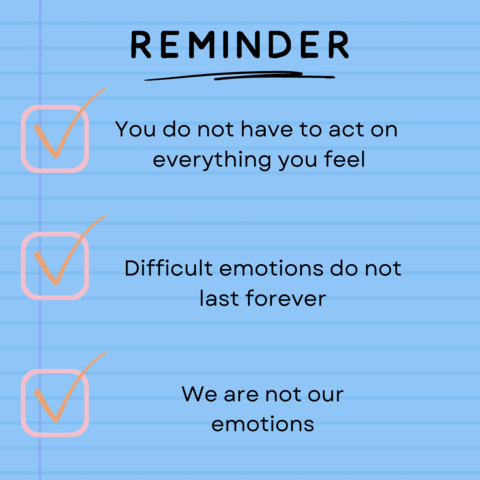Workplaces can be like families and neighbors in that we typically do not get to pick who is a part of these groups. Often these relationships work marvelously and sometimes they can be difficult, stressful, and even contentious.
Regardless, we have to manage work relationships. When relationships have tension in them, emotions can get heated, and tempers can flare.
In those critical moments when an interaction with another person “pushed our buttons” or an email arrived that “triggered our last nerve,” there are ways to manage these feelings.
While difficult interactions may still have to be addressed directly, emotion management methods can help us maintain perspective and have a sense of containment so that emotional “simmer” does not overflow into emotional “boil” and potentially make a difficult situation even worse.
Before we get into these methods it is important to note that, based on our identities and the cultures in which we were raised, the ways in which we gauge whether our emotions are getting the best of us varies.
Others do not get to decide this for you—you get to decide for you!

When you think you could benefit from some assistance managing your emotions in the workplace, here are some methods to consider:
You do not have to act on everything you feel
We can feel highly propelled by our emotions and because of that, our emotions can lead us to decide in the immediate moment of an incident that we have to react.
When we feel a strong emotion, it can often be the least desirable time to react. In these moments, we are being highly guided by our emotions and less guided by our intellect. This is not to say that our emotions are not keen and vital guides for us in navigating the world. This is more so to say that when the emotional flood waters are raging, that can be the least useful time to go wading in.
Just because you feel strongly about something someone said or did in the workplace does not always mean you have to immediately leap into action. If you still feel compelled to act, your action can be to allow yourself to reflect on the situation, and then decide how you want to proceed once calmer waters have set in.
Difficult emotions do not last forever
When we are in the thick of emotion due to something someone did at work, we can lose the perspective that the intensity of emotion we are feeling is simply not going to last.
What feels bad in the moment typically is not going to hold the same intensity the next day.
Strong levels of emotion are exhausting and require too much energy to sustain for too long. It is useful, when emotions flare, to remind ourselves, “I do not have to do anything about this right now because I will not feel the same intensity about it tomorrow. The feeling propelling me forward will subside in intensity and I will have a different viewpoint tomorrow upon which to act.”
You still eventually may act on the situation, but trying to fix your proverbial house during the peak of the hurricane can be helped by waiting to put your house back in order once the wind has subsided.
We are not our emotions
When we get ramped up emotionally due to something that happens at work, our feelings can seem all-encompassing. This can be even moreso when the triggering incident happens repeatedly.
We can, however, forget that we did not feel this exact way yesterday and will likely not feel this exact way tomorrow. We can forget we are a person having an emotion and can instead lose our sense of ourselves as separate from how we are feeling.
When we confuse our emotions for who we are, we can act in ways we would not otherwise because we think our sense of being is at stake.
When we separate who we are from how we feel, we can realistically see that the stakes are typically lower than our emotions initially told us they were.
Day-to-day workplace relationships can be challenging. We can manage our emotions by giving ourselves space to be more deliberate in responding to them.
We can also manage work relationships without having to manage the fallout from acting in ways we wished we hadn’t due to being emotionally reactive in the moment.
You get to be in charge of you and hopefully, some or all of these methods will help as we all continue to manage important workplace relationships.
